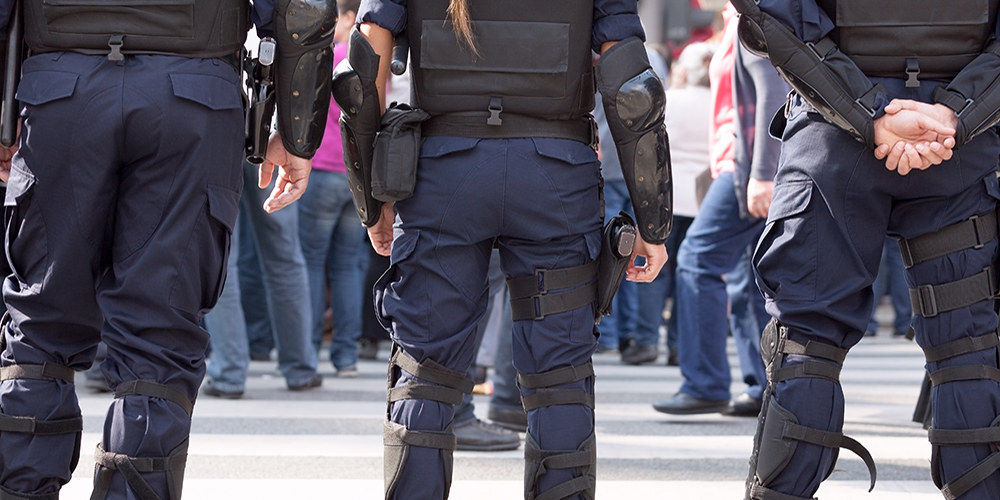UPDATE SEPTEMBER 23, 2022: Officials at Johns Hopkins University have decided to go ahead with plans to create the school’s own private, armed police force. A draft of its memorandum of understanding with the Baltimore Police Department was released this week in anticipation of the move. It detailed how the force would be created and its jurisdiction.
However, the proposed agency is facing backlash by students. On Thursday, an in-person public hearing on the matter was disrupted by protestors, reports WBALTV. Some students say Johns Hopkins isn’t investing enough in the community and root causes of crime. One student said the school should invest in better lighting and more shuttles.
However, proponents of the new agency believe it will improve response times, increase community engagement, and increase internal accountability measures.
Additional meetings that will be held to discuss the matter will take place on September 29 and 30.
Two years ago, university officials decided to delay development of its private police force (see below).
ORIGINAL JUNE 19, 2020 ARTICLE:
BALTIMORE, Md. — Johns Hopkins University (JHU) has delayed its plan to create a private armed police force amid nationwide protests regarding policing and racial injustice.
On Friday, JHU President Ronald Daniels said school officials decided to freeze everything for at least two years and participate in the discussion of police reform, reports The Baltimore Sun.
“We want to pause and see to what extent changes both at the federal and state level, and in the broad framework of policing and additional accountability, would impact anything that we would do at Hopkins,” Daniels said. “We are committing to a moratorium for two years. During that time, we’re very open to working to see how alternative approaches to public safety might work out, and to what extent they impact the need for sworn policing and the character of sworn policing.”
There is currently a group of armed off-duty Baltimore police officers and sheriff’s deputies who the university pays to patrol near its campuses. The new plan called for ending those contracts and deploying as many as 100 sworn officers to patrol its three campuses — something both students and faculty have voiced disapproval of for years.
In 2018, the group Students Against Private Police rallied in opposition to the plan. In Feb. 2019, more than 60 faculty members signed an open letter in opposition, writing that armed police officers could pose an increased safety risk and “inevitably amplify the climate of fear and justify their roles by citing stops, arrests and detainments.”
The letter also voiced concerns for the nonwhite student population, writing, “Black and brown students and Baltimoreans are already disproportionately targeted. Private police on campus are likely to exacerbate racial profiling, with even more dangers and potentially fatal consequences.”
Students and faculty have also contended that private police are less accountable than the Baltimore Police Department and a poll conducted by the Student Government Association showed 75% of JHU undergraduates were against the legislation.
In May 2019, students locked down the main administrative building in a monthlong sit-in and several students chained themselves to a stairway to protest the force and school officials’ cooperation with federal immigration authorities.
More recently, on June 9, faculty members began circulating an online petition calling on Daniels and the Board of Trustees to abandon the plan altogether. Within the first week, there were over 5,700 signatures.
“Even if the university were to create a model police force, which by the way I think is a bit of hubris, the movement against over-policing is a movement against the creation and proliferation and sprawl of special police forces,” said Toby Ditz, professor emeritus of history at the Johns Hopkins Krieger School of Arts & Sciences. “We do not want to multiply special police forces and armed police forces on campuses.”













